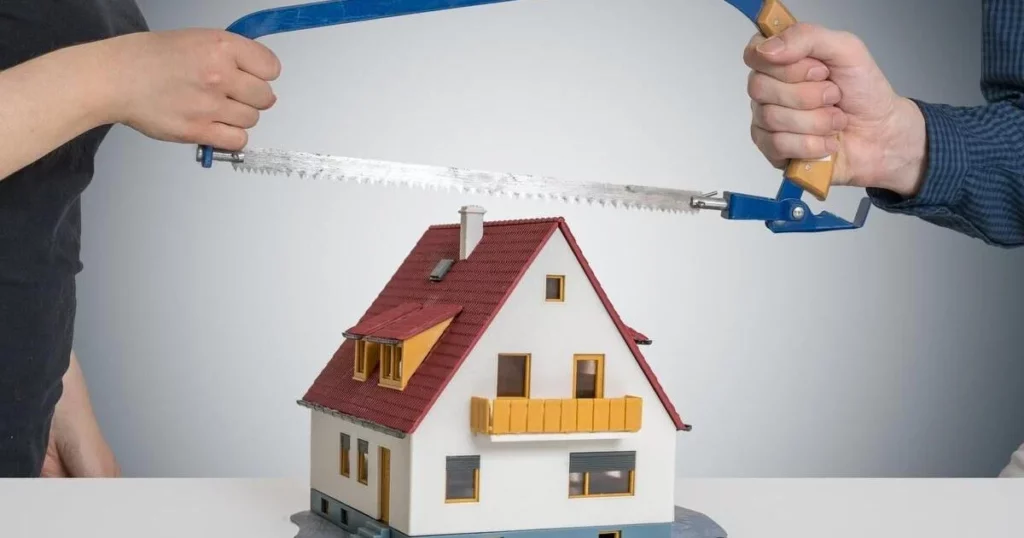Selling Your Home During a Divorce in Vancouver

Introduction
Divorce is undoubtedly one of the most stressful and emotionally taxing life events a person can experience. For someone searching for “Selling Your Home During a Divorce in Vancouver,” they are likely in a highly charged state of mind, grappling with the emotional toll of their relationship ending while also facing the practical challenge of dividing assets. The house is often one of the largest assets in a marriage, and deciding whether to sell, buy out, or keep it is a difficult decision. The person likely feels overwhelmed by the numerous decisions to be made—emotional, financial, and logistical—and they need clear, actionable advice to help navigate these complexities.
Their primary concerns likely include:
- How will the divorce affect the sale of the home?
- What is the best route to take: sell now or buy out the other spouse?
- How can they minimize stress, costs, and timelines during this already difficult time?
- What are the potential pitfalls in selling a home during a divorce?
- Are there financial benefits to selling to cash buyers?
This blog will address these concerns, offering a straightforward guide to the process of selling a home during divorce in Vancouver. We will break down the advantages and disadvantages of selling, explore potential costs, and help them understand how selling to a real estate investor (a cash buyer) may be the most efficient solution.
Understanding the Divorce Process and Its Impact on Selling Your Home
When going through a divorce, one of the first considerations is often what to do with the family home. If you are facing this dilemma in Vancouver, it’s important to understand that the process can be more complicated than just listing the house for sale. The timing, financial considerations, and emotional impact all play significant roles in making the right decision.
How Divorce Impacts the Sale of Your Home
The home’s fate during divorce is typically determined by the division of assets. In Vancouver, family law typically follows a process of equitable distribution, which means that the goal is not necessarily to split everything 50/50, but rather to ensure that each spouse receives a fair share based on their circumstances. The house, especially if it is jointly owned, must be considered a shared asset.
Selling your home may be necessary to ensure that both parties receive their fair share of the value, or it may be part of a larger settlement in which one spouse buys out the other. But selling the house during a divorce comes with its own set of complications, which we’ll explore further.
Learn more about equitable distribution in divorce to better understand how property is divided in divorce proceedings.
Should You Sell the Home or Buy Out Your Spouse?
One of the first decisions you will need to make is whether to sell the home or buy out your spouse’s share. This decision can depend on various factors including the value of the property, the financial standing of each spouse, and the desire to remain in the home.
Selling the Home
Selling the home may be the best option if both spouses can’t agree on what to do with the house, or if one of them cannot afford to buy out the other. While this may seem like a difficult decision, selling can provide both spouses with a clean break and the opportunity to move on with their lives.
Pros of Selling the Home:
- Fair Distribution of Funds: Selling the home ensures that both parties get an equal share of the sale proceeds.
- Quick Process: A sale, especially to a cash buyer, can be completed much faster than negotiating the buyout terms.
- No Emotional Attachment: Selling the property eliminates the emotional baggage that can come with staying in the home after a divorce.
Cons of Selling the Home:
- Emotional Toll: For many, selling the family home can feel like the final severing of ties with their past.
- Market Conditions: If the housing market is slow or the home needs repairs, it might be challenging to get a good price.
Buying Out Your Spouse
Buying out your spouse’s share in the home is another option. This allows one person to stay in the house while the other walks away with a cash settlement. However, this option may not be feasible for everyone.
Pros of Buying Out Your Spouse:
- Emotional Connection: If you have children or strong emotional ties to the property, staying in the home may be the best option.
- Less Disruption: Buying out the spouse allows you to stay in your current home without needing to go through the sale process.
Cons of Buying Out Your Spouse:
- Financial Strain: The spouse buying out the other will need to secure the funds to cover the buyout, which can be expensive.
- Future Tension: If not handled properly, the financial arrangement can lead to future conflict, especially if the value of the property changes over time.
If you’re finding that buying out your spouse may not be the best option for you, explore alternatives like selling your home for cash. More information on this process is available in our page on the Best Way To Sell Your House During Divorce in Washington.
Why Selling Your House for Cash During Divorce Can Be a Smart Move
When faced with selling your home during a divorce, you have several options for how to sell. While traditional real estate listings are always available, selling to a cash buyer may be a much quicker and more convenient option.
Key Benefits of Selling to Cash Buyers During Divorce:
- Speed and Convenience – Traditional home sales can take months to close, which can be stressful when you’re dealing with the urgency of a divorce. A cash buyer can close in as little as a week, allowing you to settle the matter and move on quickly.
- No Need for Repairs – Divorce can be financially draining, and the last thing you want is to sink money into repairs before selling your home. Cash buyers typically purchase homes as-is, so you don’t have to worry about spending money on repairs or cleaning.
- Certainty and Peace of Mind – Selling to a cash buyer reduces the uncertainty and stress associated with waiting for buyer financing to come through, which is common in traditional sales.
- Avoiding Complications – Divorce can complicate the sale process, especially if there are disagreements over the sale price or terms. Cash buyers simplify the process, offering a fair price and quick closing, which eliminates a lot of the potential conflict.
The Emotional and Financial Benefits of a Quick Sale
Emotionally, a fast sale can allow you to close this chapter of your life and move forward more quickly, which can be especially helpful for your mental well-being during a divorce. Financially, it ensures that the process is quick and you can divide the proceeds without delay.
Costs of Selling Your Home During Divorce in Vancouver
When selling a home during divorce, understanding the costs involved is crucial. The sale price is not the only financial consideration. Here are some of the key costs associated with selling a home in Vancouver.
- Agent Commissions – If you go the traditional route, you’ll likely need to pay a real estate agent’s commission, which can range from 3-7% of the sale price.
- Repair and Renovation Costs – If your home requires repairs or cosmetic upgrades, these costs can add up quickly. Renovations before a sale can sometimes cost thousands of dollars.
- Closing Costs – Whether you sell traditionally or to a cash buyer, there will be closing costs, including title fees, taxes, and transfer fees.
- Capital Gains Tax – If the house has appreciated in value, you may be required to pay capital gains tax on the profit from the sale, which could eat into your proceeds.
The Risks of Not Selling and Staying in the Home
There can be significant risks to not selling the home during a divorce and trying to stay in it. If one spouse cannot afford to buy out the other, or if there are other financial challenges, staying in the home may not be sustainable.
Potential Risks Include:
- Long-Term Financial Strain: Carrying a mortgage and other house-related costs after a divorce can be financially unsustainable, especially if your income has changed.
- Emotional Stress: Remaining in the family home after a divorce can lead to prolonged emotional stress, especially if you are trying to move on but are still tied to the property.
For many, the decision to sell the house quickly is the best way to relieve financial and emotional strain.
Conclusion: Why Selling to PineCone Properties Might Be the Best Option
After considering all of your options, selling your home during a divorce can be an emotional and financially challenging process. While traditional sales can offer flexibility, they often come with long timelines, hefty repairs, and the risk of delays, especially with financing issues. Selling your home to PineCone Properties offers a simpler, faster solution that can relieve both emotional and financial stress.
By choosing to sell to PineCone Properties, you’ll avoid the time-consuming and costly repairs that typically come with traditional home sales. We offer fast, fair cash offers and a streamlined process that can close in as little as a week. This means you can quickly move on from the property, ensuring a clean break and allowing both parties to focus on rebuilding their lives.
Selling to PineCone Properties provides you with certainty, peace of mind, and the ability to resolve the financial aspects of your divorce without the headaches of a drawn-out sale. Reach out to us today for a hassle-free, cash sale and take the first step toward closing this chapter of your life.

